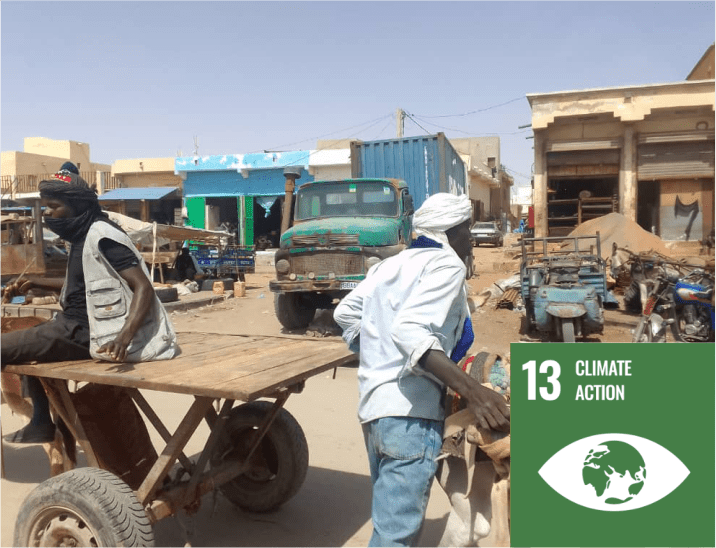SDG Goal 13 – Climate Action

The United Nations Intergovernmental Panel on Climate Change (IPCC) has just released the final part of the Sixth Assessment Report. This report is seen as one of the most important assessments which makes it clear that anthropogenic climate change has caused widespread and rapid changes in the atmosphere, ocean, cryosphere, and biosphere. Unlike most of the previous reports by the IPCC, the AR6 synthesis report stresses on international and internal inequality and the disproportionate impacts on the most vulnerable communities, particularly in Africa, Asia, and Central and South America.
Communities discriminated on the basis of their work and their descent are economically and socially disadvantaged and thus, have fewer adaptation resources to combat the damage from events related to climate change. Their inability to exercise their political rights manifests in the form of systemic discrimination. All of these enhance their vulnerabilities.
Take the example of India. As the Indian monsoon and rainfall patterns change due to climate change, the agriculture sector gets hit first. 70 per cent of all farmers from the Scheduled Castes work as agricultural workers and are dependent on daily or seasonal wages.
Further, as floods, heat waves, sea levels rise and extreme weather events are increasing, experiences from most part of India demonstrate how caste oppressed communities are not only disproportionately affected by them but get discriminated against during rescue, rehabilitation, and recovery from climate onslaughts. In such a case, it is difficult to imagine how the State expects them to adopt adaptation and mitigation measures.

